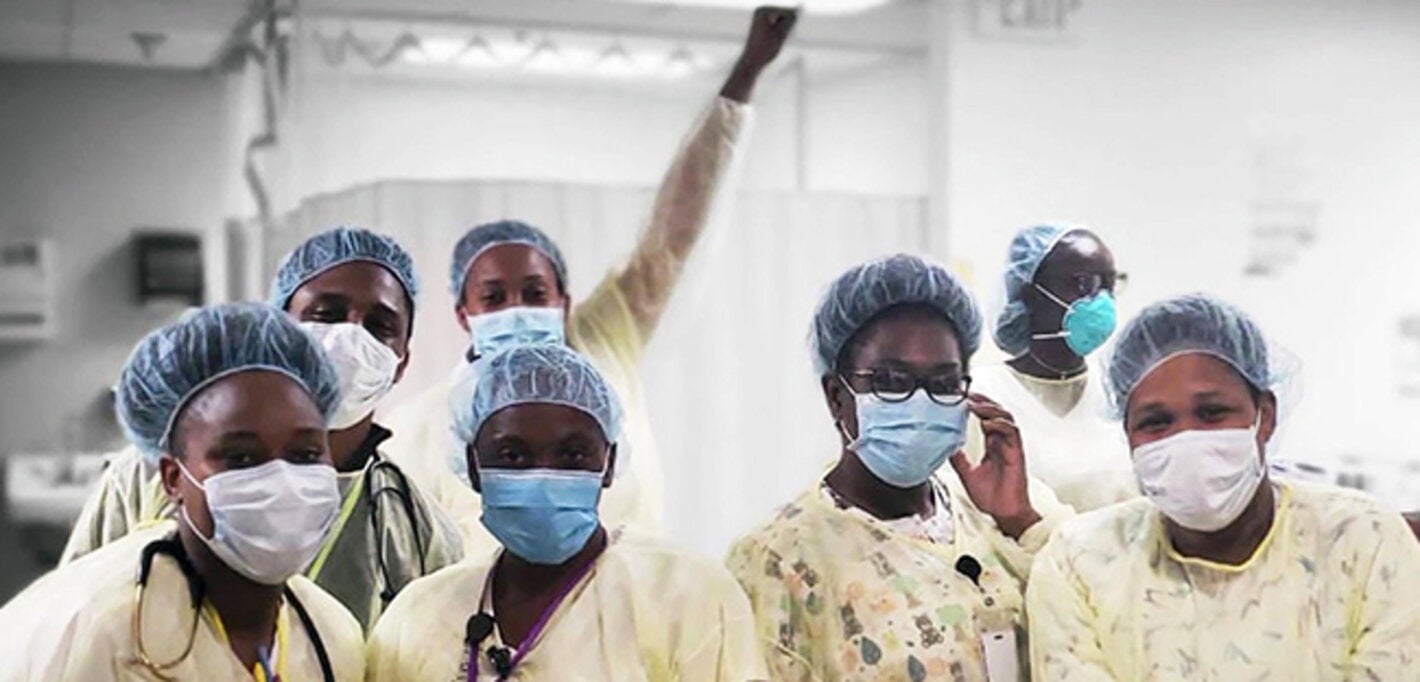
30 April
10:30-12:30 EDT
Recording
With interpretation to Spanish
Equity in health is a key objective of the United Nations 2030 Sustainable Development Goals Agenda and is a basic condition to achieve social justice and compliance with human rights. The COVID-19 pandemic has triggered unprecedented challenges in all spheres of human life, including work. It also has shown how major inequalities and existing structural inequities in the Region of the Americas, have increased for the entire working population and their families, and more severely for those in conditions of vulnerability, due to the impact of the triple burden of the economic, social, and sanitary crises.
Although it is well known that the lack of reliable data has hidden the magnitude of social inequalities in the health of the working populations, with the report from the Employment Conditions Network (EMCONET) of the Commission of Social Determinants of Health, and its publication entitled Employment, Work and Health Inequality: a Global Vision , there have been multiple national and sub regional initiatives and efforts to document and understand the magnitude of employment and work inequalities in Latin America and the Caribbean. In 2018 PAHO joined this effort, by estimating health inequalities in the working population of Latin America and the Caribbean using the methodology proposed by WHO . Based on this result, with the joint effort and support of the University of Houston in Texas, a PAHO/WHO Collaborating Center on Occupational Health; and the research Center for Labor Health (CiSAL) of the University Pompeu Fabra, this exercise was completed by applying this methodology. Results obtained allow to compare health inequalities in the working population within and among 15 countries from LAC . These results represent an additional progress for monitoring inequality in occupational health in the Region, and can be the basis and the source of new studies, particularly related to the impact of the COVID-19 pandemic, that seem to have augmented inequalities during 2020, increasingly deteriorating more the living and working conditions of these populations. In fact, it is noteworthy is that many of the COVID case registries do not include occupational or employment dimensions, and so, it is difficult to establish the magnitude of its impact on the working population. Nonetheless, workers in the informal economy and in informal employment are considered to be largely affected, that all together, correspond to more than 50% of the regional workforce.
The pandemic has touched almost all aspects related to working and employment conditions, from the risk of introducing and spreading the virus in the workplaces, to vulnerable situations related to precarious employment relations, and the effects of implementing mitigation strategies to prevent its spread, that generated other safety and health risks in the workplace. For example, the effects related to the implementation of public health measures, and the suspension of labor activities and unemployment, within others. As a consequence, changes and amendments on the ways of work and labor agreements have ocurred, including teleworking, whose implementation has only been possible for only 25% of the working population in the Region. As well, new occupational risks have also risen affecting physical and mental health of workers and their social settings.
To better know and understand these situations, we will be joined by delegates from diverse labor organizations who will share their experiences, testimonies and comments, as well as experts that will share with us these realities and the challenges that we will face in view of the impact of the COVID-19 pandemic and the recovery era post-COVID.
About World Day for Safety and Health at Work 2021
The World Day on Occupational Safety and Health at Work, declared by the International Labor Organization (ILO) is an international commemoration for the workers who suffered injuries, diseases or died at work, as well as for those events that were successfully prevented. Like every year, PAHO joins this celebration. On this occasion, we want to show the level of inequalities for workers’ health, seeking to find paths ways to achieve equity in health in the working population, especially for those in conditions of vulnerability. We know that the COVID-19 pandemic has magnified this situation, and therefore, we want to listen several perspectives from workers, to visualize the ways to improve and promote health and well-being for the regional workforce.
Agenda
10:30 Introduction:
Dr. Julietta Rodríguez Guzmán, MD MScA, Regional Advisor on Workers Health, FPL/PS, Moderator
10:35 Opening remarks
Dr. Andres De Francisco, Director, Department of Family, Health Promotion and Life Course (FPL)
10:40 Health inequity in workers of Latin America and the Caribbean
Dr. Michael Silva-Peñaherrera, PhD (25 min)
11:05 The axles of health inequality associated to employment
Dr. Orielle Solar, Regional Advisor on Social Determinants of Health, FPL/PS (5 min)
11:10 Experiences and Voices from Workers: (10 min. each one)
‒ Mr. Jorge Hernandez, President of SINTEC, President of FETRACOMA, President of the Latin American and the Caribbean of International Youth Construction and Wood Workers (ICM), Chile
‒ Ms. Maria del Carmen Cruz Martinez, President, Association of Domestic Workers (ASTRADOMES) and General Secretary, Latin American and the Caribbean Confederation of Home Workers (CONLACTRAHO), Costa Rica
‒ Ms. Luba Melo, Secretariat of the Working Women SINDSEP SP (union of municipal public servants from São Paulo), General Subsecretary from CONFETAM (Confederation of Municipal Workers from Brazil), Director of IAMREC - Interamerican Regional Executive Committee from ISP (international public services), Brazil
‒ Ms. Maria Eugenia Londoño, Secretary of Gender, Inclusion and Equality, at the Colombian Federation of Education (FECODE), Colombia
11:50 Comments and insights about occupational health practice
Commentators:
‒ Lawyer Karla Canova, MSc in OHS – Co-director, Permanent Secretariat of the Latin American Association on Occupation Health (ALSO), Peruvian Society on Occupational Health SOPESO, Peru
‒ Dr. Renato Bignami, Occupational Safety and Health Specialist, ILO Regional Office of the Americas, Brazil/Peru
12:00 Conclusions and closing remarks
Dr. Gerry Eijkemans, Unit Chief, Health Promotion and Social Determinants
